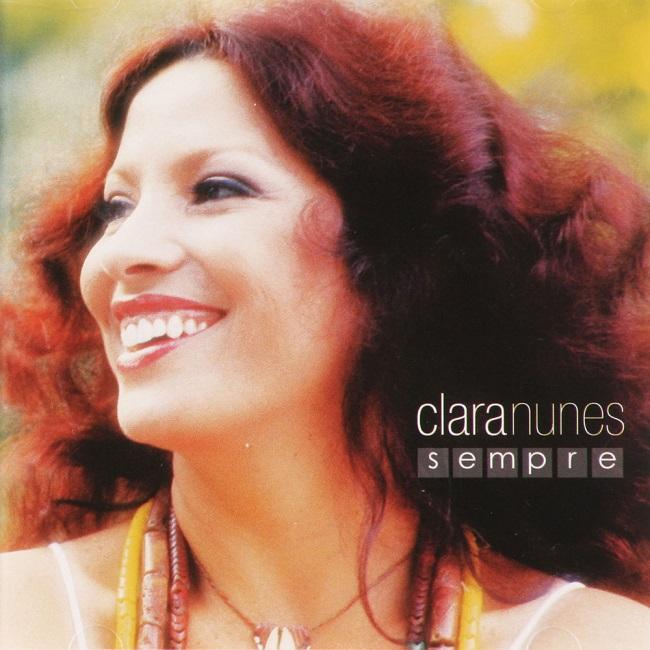
In 1972, she staged her first show, Sabiá Sabiô. In 1970, she had success with "É Baiana" (Fabrício da Silva/Baianinho/Ênio Santos Ribeiro/Miguel Pancrácio) and the Portela samba-enredo "Ilu Ayê" (Norival Reis/Silvestre Davi da Silva). Singing boleros and sambas-canção, the option for the samba came only in 1968 with her first hit, "Você Passa E Eu Acho Graça" (Ataulfo Alves/Carlos Imperial).


The first record came in next year, A Voz Adorável de Clara Nunes. She moved to Rio in 1965 and was hired by TV Continental. Also singing in nightclubs, she was appointed for three times as best singer of the year. Hired by a radio, she had her own show at TV Itacolomi (Minas Gerais). In 1960, she won the Minas Gerais section of the national contest A Voz de Ouro ABC and was classified in the third place in the national final. An orphan since childhood, Clara Nunes became a manual laborer at a factory suffering with difficulties and poverty.

Among her hits, recorded in her solo 16 albums, there are "Você Passa E Eu Acho Graça" (Ataulfo Alves/Carlos Imperial), "Ê Baiana," "A Deusa Dos Orixás," "Macunaíma," "O Mar Serenou," (Candeia), "As Forças Da Natureza" (João Nogueira/Paulo César Pinheiro), "Guerreira," "Feira de Mangaio" (Sivuca/Glorinha Gadelha), "Portela Na Avenida" (Mauro Duarte/Paulo César Pinheiro), and "Nação" (João Bosco/Aldir Blanc). She had (and still has) enormous success with sambas by composers of the hills like "Juízo Final" (Nelson Cavaquinho/Élcio Soares) and "Coração Leviano" (Paulinho da Viola) and songs devoted to her religion, the Candomblé. Together with Beth Carvalho and Alcione, Clara Nunes, in life, was regarded as one of the three Queens of Samba.


 0 kommentar(er)
0 kommentar(er)
